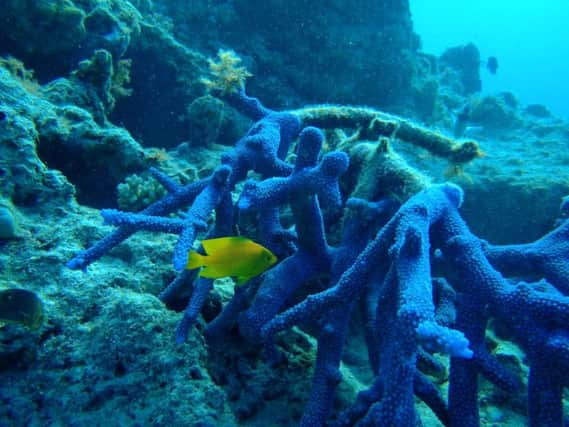Yorkshire scientists helping to protect our oceans
This article contains affiliate links. We may earn a small commission on items purchased through this article, but that does not affect our editorial judgement.


An international team, led by researchers from the University of Sheffield, have been examining the effects of weathering - a process which affects oceans.
They found that speeding up the naturally-occurring process of the weathering of rock, to draw CO2 out of the atmosphere, could help stabilise the climate. The process could help avert ocean acidification, caused by humans burning fossil fuels.
Advertisement
Hide AdAdvertisement
Hide AdWeathering occurs when rainwater comes into contact with rocks under warm conditions, causing the rock to break down chemically. This process converts CO2 to bicarbonate, a natural neutraliser, which eventually drains away via rivers to the oceans.
Dr Lyla Taylor, from the University of Sheffield’s Department of Animal and Plant Sciences, said: “Phasing down fossil fuel emissions remains a top priority, but we also need to better understand potential strategies for safely removing atmospheric CO2 to avert dangerous climate change.
“We have shown that, in principle, rock weathering could indeed draw down atmospheric CO2 and could benefit coral reefs in the ocean.
“The simulations we ran were idealised as they covered some of the world’s most ecologically sensitive terrestrial environments, however our evidence shows that the enhanced weathering strategy is definitely worth investigating further, as it could play a significant role in offsetting the damage we are doing to the environment.”
Advertisement
Hide AdAdvertisement
Hide AdOcean acidification is caused by the uptake of CO2 from the atmosphere, which leads to an ongoing decrease in the pH of the Earth’s oceans and has a range of possible harmful consequences including coral bleaching, which leaves the organism vulnerable to disease.
The United Nations estimate ocean acidification could cost the global economy one trillion US dollars a year by 2100.
Lead author of the study, Professor David Beerling, also from the Department of Animal and Plant Sciences, said: “This study is important because deploying strategies for removing CO2 from the atmosphere are strongly embedded in climate stabilisation policies, but don’t yet exist.
“With the UN Climate Change Conference still at the forefront of everyone’s mind, it is vital that we investigate the safety, effectiveness and benefits of methods such as enhanced weathering so we know what our options are. Detailed theoretical modelling like this is a good place to start.”
Advertisement
Hide AdAdvertisement
Hide AdThe study, which has been published in Nature Climate Change, was conducted by researchers at the University of Sheffield in collaboration with the University of Bristol, University of California, Columbia University, and the Goddard Institute for Space Studies.
Last month saw the launch of its £10 million Leverhulme Centre for Climate Change Mitigation led by Professor Beerling, which will develop the science to safely remove CO2 from the atmosphere to cool the planet.